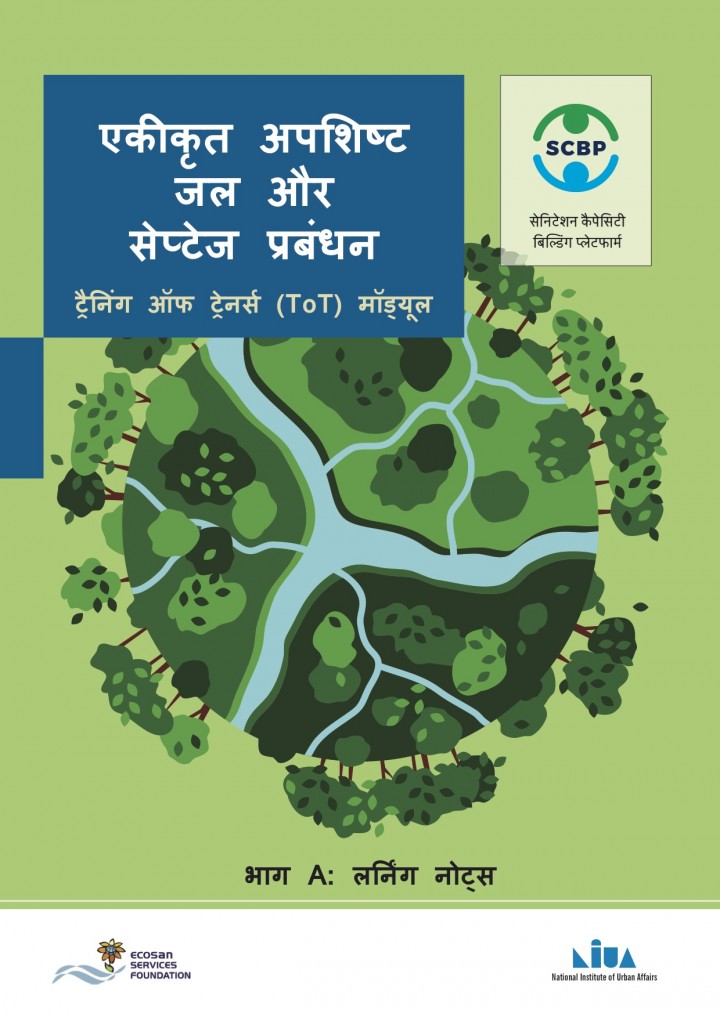Integrated Wastewater and Septage Management - Training of Trainers (ToT) Module (Part A: Learning Notes) (In Hindi)
NIUA (2017)

Published in: 2017
Pages: 152
Publisher:
National Institute of Urban Affairs (NIUA), New Delhi, India
Author:
NIUA
Uploaded by:
Sterenn Philippe
Partner profile:
National Institute of Urban Affairs
1848 Views
0 Downloads
Location of library entry
There are centralized and decentralized / on site systems of treatment of wastewater and septage. While conventional sewerage may be a comprehensive system for sewage collection and transport, it also is a highly resource intensive technology for CapEx and OpEx. Consequently, high capital cost and significant O&M cost of this system inhibits its widespread adoption in all sizes of urban areas.
Decentralized FSTP are emerging as solutions to the challenge of addressing safe treatment and disposal of septage. However, it does not imply that all small towns and cities need FSTP infrastructure.
The Handbook attempts to instill a rational perspective for tackling urban sanitation challenge, without being prescriptive or offering single technology solutions. This is compendium of planning process and technologies involved in treatment of wastewater and septage.
Municipal Commissioners and Executive Officers of Class II and Class III towns and cities, officials of the state parastatal departments and the ULBs including engineers, sanitary inspectors, public health officials and staff from the Finance and Accounts departments dealing with Sanitation.
The module aims to convey the following learning:
• Understanding the current problems in the water and sanitation sector at the city level.
• Understanding the different approaches and its applicability under different constraints to tackle these problems.
• Decentralized wastewater and septage treatment solutions are technically sound options for Indian towns and cities and are not sub optimal solutions as compared to centralized sewerage systems.
• Over view of decentralized wastewater treatment technologies and their applicability under different contexts.
• Assessment and planning both technical and financial for FSSM at the city level.
The workshop is proposed to be conducted in three days. It could be extended by another day depending on the size of a batch of trainees and their interest and time given for all the sessions.
Bibliographic information
NIUA (2017). Integrated Wastewater and Septage Management - Training of Trainers (ToT) Module (Part A: Learning Notes) (In Hindi). National Institute of Urban Affairs (NIUA), New Delhi, India
Filter tags
East Asia & Pacific Trainer manuals (adult learning)














